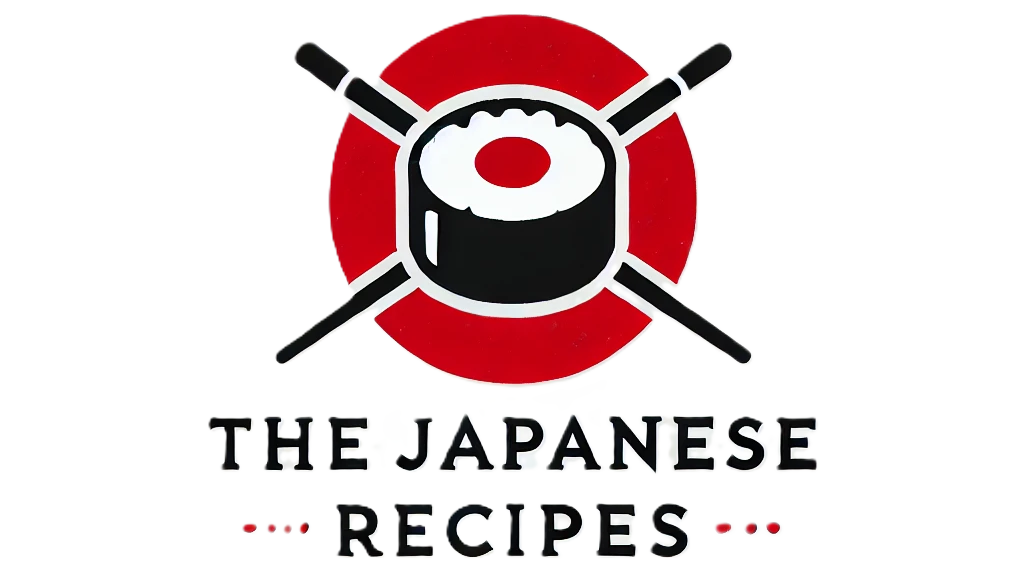Introduction
The Japanese Breakfast at Union Transfer 2020 concert is often hailed as one of Philadelphia’s standout indie music events in recent memory. Union Transfer, a beloved venue for artists across genres, provided a fitting stage for frontwoman Michelle Zauner, whose introspective songwriting and dreamy melodies have garnered a devoted following. Despite the challenges of touring schedules and global events in 2020, Japanese Breakfast’s performance symbolized resilience and creativity, echoing a sentiment of hope among fans who thronged the show.
But who is Michelle Zauner, and what’s behind the whimsical band name “Japanese Breakfast?” While some might assume a literal reference to Japanese cuisine—a staple theme in her personal life—others recognize that the moniker resonates with the fusion of personal and cultural layers found throughout the band’s discography. If you’re intrigued by the notion of Japanese breakfast as a meal, you might also check out our traditional-japanese-desserts-recipe to see how sweet confections complement the broader tapestry of Japanese-inspired creations.
In the sections ahead, we’ll unpack the magic behind that particular 2020 show, the background of Union Transfer, and the synergy between Philadelphia’s music scene and Japanese Breakfast’s ascent. Whether you’re a longtime fan or a newcomer, this deep dive will amplify your appreciation for an indie artist who continues to expand boundaries in both music and meaning.
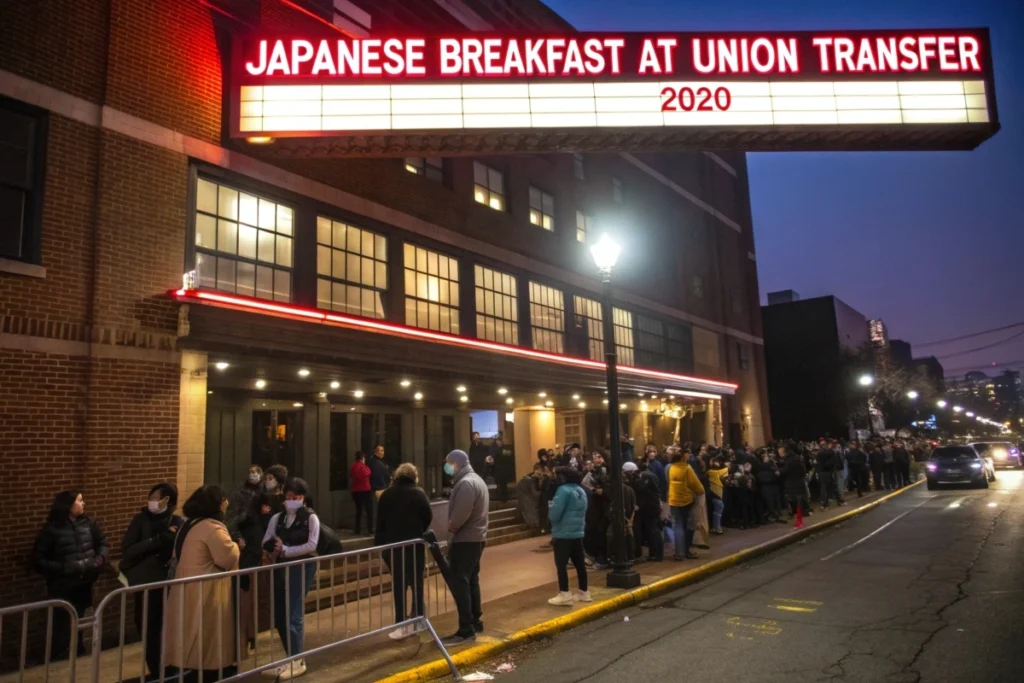
1. Japanese Breakfast: The Band, The Name, The Rise
Behind the Name “Japanese Breakfast”
Curiosity often swirls around Why is she called Japanese Breakfast? Michelle Zauner, the singer-songwriter behind the band, drew inspiration from her Korean-American upbringing and a fascination with bridging cultural elements. While the name “Japanese Breakfast” might evoke images of miso soup and grilled fish, it mostly represents Zauner’s creative blend of East-West influences—humorously entangled with everyday references to morning meals. This playful yet thoughtful approach surfaces in her music as well.
Band Background
- Michelle Zauner: Born in Seoul, raised in Eugene, Oregon. She studied creative writing at Bryn Mawr College, near Philadelphia, where her musical passions blossomed.
- Early Projects: Before Japanese Breakfast, Zauner was part of Little Big League, a Philly-based rock outfit. Once that ended, she pursued a more introspective solo project.
- Debut Album: Psychopomp (2016) tackled personal grief and cultural identity, quickly resonating with indie fans. The layering of dream-pop and haunting lyrics stood out.
Musical Evolution
With each release, Japanese Breakfast refined its sound—blending shoegaze guitars, synth-pop flourishes, and shimmering vocals. Albums like Soft Sounds from Another Planet showcased growth in production and emotional scope, winning over critics and festival audiences alike. By 2020, Zauner was recognized as one of indie’s most innovative voices, culminating in a high-profile presence on the Philadelphia scene and beyond.
Where Did Japanese Breakfast Go to College?
Zauner attended Bryn Mawr College, a liberal arts institution in the Philly suburbs, which offered a backdrop for her early songwriting experiences. The closeness to Philadelphia introduced her to the city’s indie circles—leading eventually to performances at iconic venues such as Union Transfer.
Signature Sound
- Lyrical Depth: Songs frequently explore themes of loss, heritage, and longing.
- Instrumental Layers: Ethereal synth pads, dynamic guitars, and sometimes orchestral touches unify under Zauner’s emotive vocals.
- Visual Aesthetic: Artwork and music videos often highlight a kaleidoscope of cultural motifs and personal narratives.
Cultural Ties to Food
Interestingly, Zauner’s music sometimes intersects with her love for cuisine, culminating in a published memoir, Crying in H Mart, focusing on food and family. While “Japanese Breakfast” isn’t literally about morning meals, the band’s identity nods to how cultural or culinary references can shape an artistic journey.
For fans intrigued by this interplay of food and music, you can explore the synergy in our vegan-japanese-recipes for a plant-based spin that resonates with some of the cultural themes Zauner has embraced. Ultimately, the name “Japanese Breakfast” cements Zauner’s approach: bridging cultural signifiers to craft something deeply personal and creatively distinct.

2. Union Transfer: Philadelphia’s Historic Venue
The Essence of Union Transfer
Union Transfer is more than just a mid-sized music hall in Philadelphia; it’s a place steeped in local history and a magnet for diverse artists. For those curious, Who owns Union Transfer?—the venue is a collaboration between local promoters who recognized the need for a modern yet intimate space. Housed in a 19th-century building initially used as a luggage transfer station, this concert hall retains vintage charm mixed with contemporary amenities.
Why Union Transfer?
- Strategic Location: Close to key Philadelphia neighborhoods, with easy access to public transport and “food near Union Transfer” for pre- or post-show snacks.
- Acoustic Excellence: Lauded for crisp sound, it suits indie bands like Japanese Breakfast who rely on nuanced sonics.
- Capacity & Vibe: Holding around 1,200 attendees, Union Transfer fosters an electrifying yet personal atmosphere that suits rising acts and established cult favorites.
Memorable Shows and Milestones
- Alex G Union Transfer: Another Philly artist, Alex G, has performed sold-out gigs here, exemplifying how local talents view Union Transfer as a rite of passage.
- Great Grandpa Union Transfer 2017: Reflecting the venue’s broad musical tastes, this alt-rock band found a warm Philly reception.
- Solar Sounds Philly July 23rd: A special event series featuring emergent indie acts, reinforcing Union Transfer’s role in championing new voices.
Union Transfer Photos
Every show at this venue spawns a flurry of fan-uploaded photos. The hall’s old-school balconies and ornate interior create striking backdrops, giving each snapshot a timeless feel. White neon signage outside invites concertgoers to document their night, leading to vibrant social media posts showcasing how typical dishes in Japan can meet Philly cheesesteaks in the same vibrant city.
Significance in 2020
Japanese Breakfast’s 2020 show at Union Transfer represented a notable chapter for both the band and the venue. Despite global uncertainties that year, fans flocked to the site, craving live music’s communal energy. The synergy of a beloved hometown (Philadelphia) and a band on the brink of stardom made for an unforgettable night. Attendees often recall the swirling lights, pristine acoustics, and Zauner’s heartfelt banter weaving together the magic of that particular performance.
Looking for additional local flavor? Combine your Union Transfer night with a dash of Japanese dining by referencing our japanese-chicken-fried-rice-recipe to host a homemade pre-show feast. This is how Philly’s indie scene and the city’s gastronomic spirit collide, forming an experience that extends beyond the stage and into the heart of Philly’s culture.
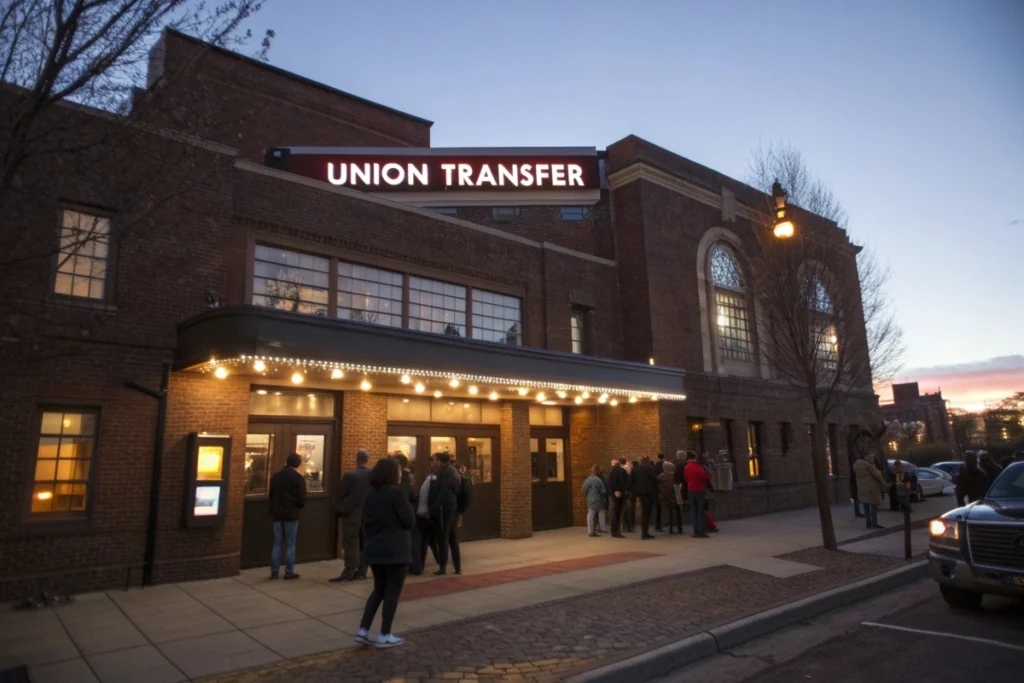
3. The 2020 Show: Why It Resonated with Fans
A Snapshot of the Event
Japanese Breakfast at Union Transfer 2020 was more than just a concert; it was an emotional homecoming for Michelle Zauner, who has deep ties to Philadelphia. While some concerts around that time faced cancellations or venue changes, this particular show went ahead (with heightened precautions), creating a sense of both relief and celebration among ticket holders.
Atmosphere and Setlist
- Energy: The crowd roared from the moment the band stepped on stage. Many fans recounted how each song felt like an intimate conversation in a large room.
- Song Highlights: Performances from Soft Sounds from Another Planet (like “Diving Woman” and “Road Head”) combined with newer tracks, bridging emotional and sonic arcs.
- Visuals: Minimal stage props but dynamic lighting accentuated each melodic shift. The synergy matched the personal yet cosmic vibes for which Japanese Breakfast is known.
Connection to the Music
In a year overshadowed by global uncertainty, live shows took on deeper significance. Fans expressed that hearing Japanese Breakfast’s introspective lyrics live felt cathartic—especially in a city where Michelle Zauner honed her craft. The emotional honesty of songs exploring grief and identity struck a chord, reminding audiences of music’s unifying power.
Performance Challenges
- Logistics: Swift changes in public health guidelines meant the band had to adapt meet-and-greets or backstage interactions.
- Venue Adjustments: Union Transfer staff juggled new protocols while maintaining the venue’s warm vibe, ensuring safety didn’t overshadow the concert’s magic.
Critical Reception
Local press, from Philly-based blogs to national music sites, lauded the show’s success. Recurring phrases included “a heartfelt homecoming,” “captivating vocals,” and “a timely reflection of perseverance.” For many critics, the performance underscored how personal narrative can shape an artist’s entire stage presence, forging deeper emotional ties with the audience.
Memorable Moments
- Michelle’s Dedications: Zauner dedicated songs to old Philly friends, sharing anecdotes about the city’s role in her journey.
- Fan Interaction: Breaks between sets allowed her to chat with the crowd about their own experiences, bridging performer-audience divides.
- Merch Corner: An array of T-shirts and vinyl drew lines, with fans eager for keepsakes from a show they suspected would be legendary.
For a taste of how to replicate a “hot white Japanese food” dish before heading to your next concert, see our hot-white-japanese-food guide, ensuring a warm fill-up without overshadowing the show’s main event. Because sometimes, you need a comforting meal that resonates with the easy glow of an indie setlist.
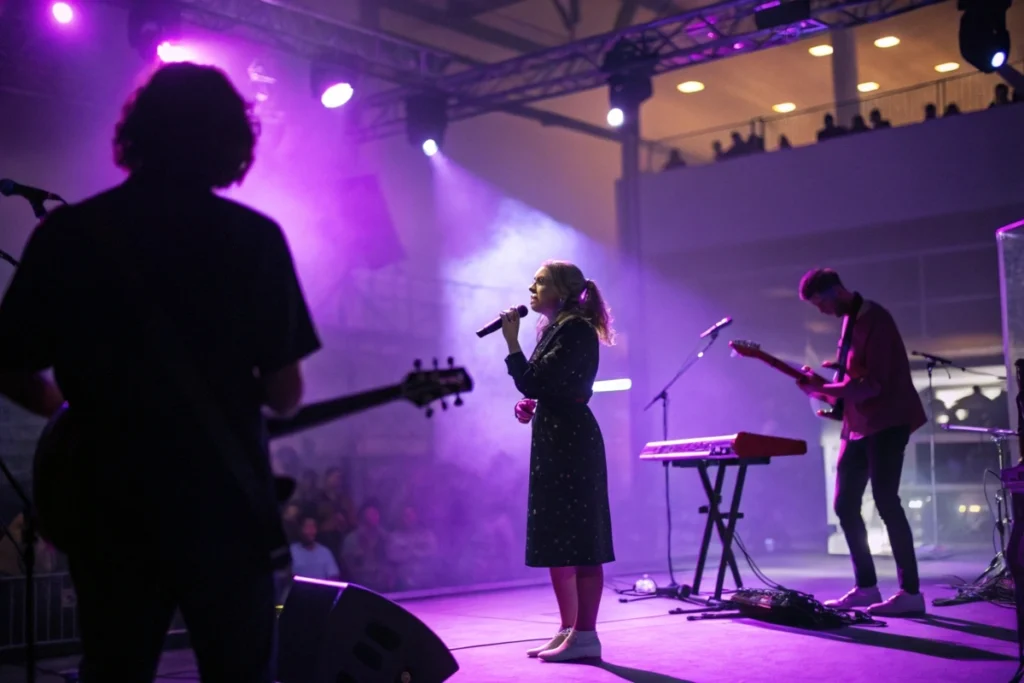
4. Connecting Music and Food Near Union Transfer
Philly’s Culinary Scene Meets Japanese Breakfast’s Aesthetic
Philadelphia boasts a vibrant dining landscape, and food near Union Transfer covers everything from classic cheesesteaks to global delights. For fans of Japanese Breakfast, the synergy of music and food can be especially meaningful. Michelle Zauner’s personal brand consistently touches on cuisine— from writing about her mother’s Korean cooking to referencing cultural meals in her memoir.
Local Eateries by Union Transfer
- Indie Coffee Shops: Grabbing a latte or quick pastry near the venue remains a standard pre-show routine. Some coffee spots even offer miso-infused pastries or unique twists aligning with East-West flavors.
- Ramen and Izakaya: Within walking distance, several ramen joints cater to the city’s love for Japanese-inspired dinners. Slurping a bowl of tonkotsu or miso ramen before the concert can set the mood.
- Fusion Restaurants: Philly’s penchant for innovative cuisine means you might find kimchi-based tacos or “Japanese-inspired hoagies,” bridging local comfort with global creativity.
“Japanese Breakfast” as a Real Meal?
Though the band’s name references a playful notion of a morning spread, actual Japanese breakfasts typically feature:
- Steamed Rice
- Miso Soup
- Grilled Fish
- Pickled Vegetables
- Tamago (Egg) Dishes
For a fan wanting to emulate that concept, perhaps pre-show dining includes miso soup and onigiri—light enough not to weigh you down for a night of dancing. Check out our japanese-chicken-fried-rice-recipe-2 for a hearty variation if you prefer a more robust meal.
Event-Focused Dining
- Pre-Concert Bites: Light meals ensure you can stand and sway comfortably.
- Post-Concert Hangouts: Some fans gather at 24-hour diners or late-night bars for reflection on the show.
- Union Transfer Photos: Snapping pictures of your food near the marquee or inside a bar with show posters can be a fun way to document the experience.
Community Engagement
Music-lovers often find common ground discussing both performances and local eats. Union Transfer regularly partners with community events—like solar sounds phili July 23rd or niche fan gatherings—leading to cross-pollination of music and gastronomic culture. The result? An inclusive environment where attendees might share quick dinner recommendations or detail how the show resonated personally.
This synergy combines Alex G’s indie rock style at Union Transfer, Japanese Breakfast’s cross-cultural vibe, and Philly’s innovative food scene. It transforms a simple night out into a multi-sensory feast. Next time you plan a concert at Union Transfer, explore the surrounding culinary spots. These venues can complement the music with equally memorable flavors.
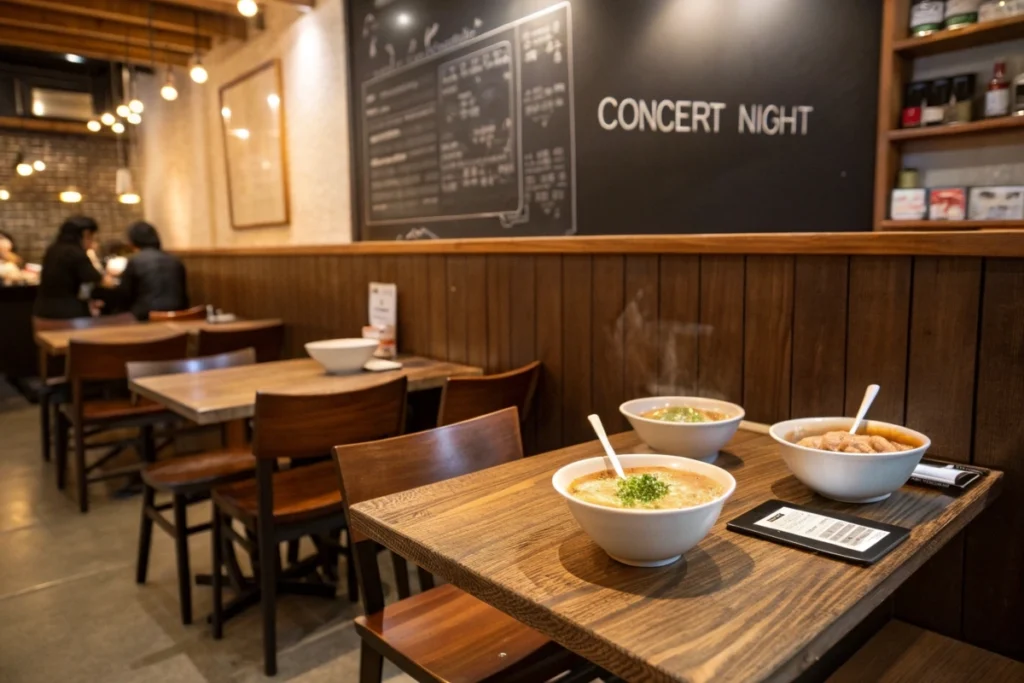
5. Aftermath and Reflections: Japan, Philly,
Post-2020 Trajectory
After Japanese Breakfast at Union Transfer 2020, the band’s profile soared further, leading to multiple late-night TV appearances and festival headlining slots. Meanwhile, Michelle Zauner’s personal endeavors—like her memoir Crying in H Mart—cemented her voice as an influential cultural figure bridging music, Asian diaspora experiences, and gastronomy.
Where Does Japanese Breakfast Live?
Though Zauner once resided in Philadelphia, she has since spent time on both coasts, continuing to travel for tours and creative projects. She’s embraced the life of a modern musician: partially nomadic, linked to major music hubs like New York, LA, or even occasionally returning to East Asia for inspirations. Yet, Philly remains a spiritual home base where early career milestones still shape her artistry.
Impact on Indie Rock
Japanese Breakfast’s fusion of shimmering pop, indie rock grit, and autobiographical lyricism resonates beyond Philly. Publications cite Zauner among the “most dynamic frontwomen” in contemporary music. The success of that 2020 performance at Union Transfer mirrored a broader shift in indie circles—where personal narrative and cultural exploration drive new forms of musical expression.
Union Transfer’s Ongoing Legacy
Even as new venues emerge or older ones close, Union Transfer remains a cornerstone for mid-sized tours. It maintains a strong lineup of alt-rock, pop, and electronic acts. The collaboration with local event promoters ensures continuity for returning fans. Some fans recall their first time attending the “Great Grandpa Union Transfer 2017” show. Others discover the scene through “Alex G Union Transfer” gigs. By hosting Japanese Breakfast’s 2020 set, Union Transfer cemented its rep as a crucible for emerging stars.
Indie Collaborations and Future
Zauner occasionally crosses paths with other local artists or collaborates on new music, bridging the gap between American indie trends and subtle references to East Asian culture. For instance, the band has flirted with adding traditional instruments or leaning into more conceptual stage designs that evoke both Philly’s DIY roots and Japanese aesthetics.
Inspiration for Fans
Listeners often find parallels between the band’s creative evolution and their own personal growth. Fans explore deeper cultural identities or forge fresh collaborations. They see the Japanese Breakfast story as permission to chase their own improbable dreams. Some adopt the name “Japanese Breakfast” as a lens to appreciate everyday cultural fusions. Examples include blending Western brunch habits with a dash of miso soup or onigiri.
For a behind-the-scenes glimpse into how Japanese cuisine can be reimagined, consider our authentic-japanese-barbecue-sauce-chicken-recipe-easy-delicious to see how trans-cultural marinade techniques can elevate classic American poultry. It’s a reminder that, much like Japanese Breakfast’s music, creativity thrives when multiple influences converge.
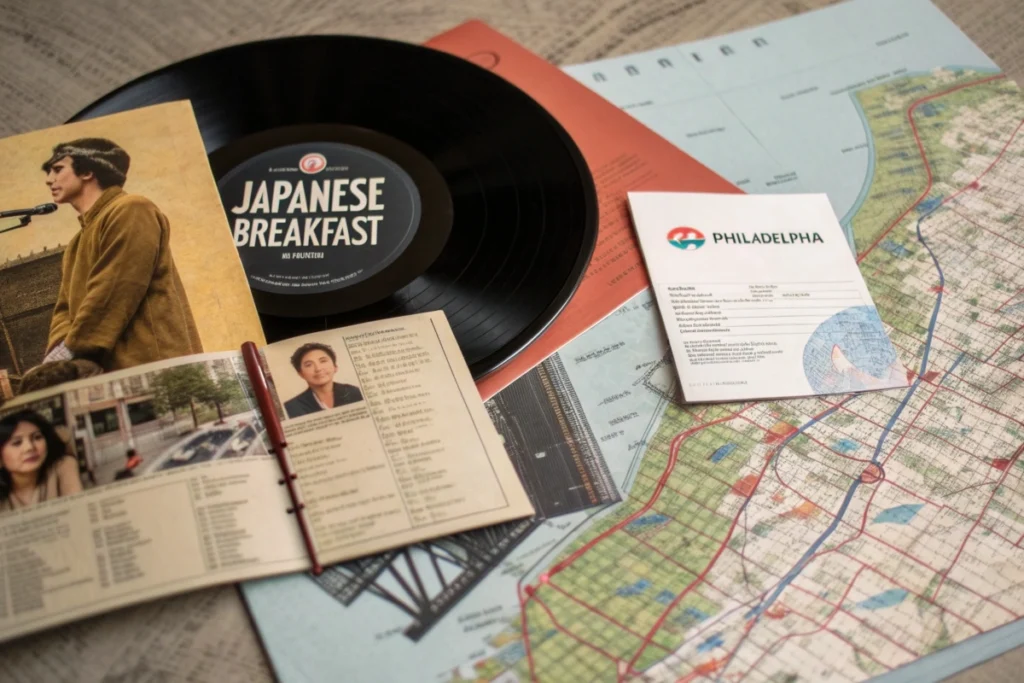
History/Context
Japanese Breakfast emerged from a fusion of personal reflection, collegiate influences, and indie music’s DIY ethos. Meanwhile, Union Transfer stands on the shoulders of Philadelphia’s diverse cultural background, repurposing a 19th-century railway site for modern entertainment. Let’s explore these roots:
Japanese Breakfast: Early Foundations
- College Days: Michelle Zauner’s formative years at Bryn Mawr College introduced her to Philadelphia’s music community, leading to her initial band, Little Big League.
- Formation: In 2013-2014, after personal tragedy, Zauner began writing deeply emotive solo material. This personal vantage formed the seeds of “Japanese Breakfast,” with a unique dream-pop/indie-rock sound.
Union Transfer’s Past Lives
- 19th Century: Initially constructed as a luggage transfer station (hence the name), the building served travelers crossing from one line to another.
- 20th Century: Over the decades, it was repurposed for different businesses before falling into partial disuse.
- Relaunch as a Venue: In 2011, local promoters recognized its potential as a mid-sized music hall. Retaining vintage architectural details, they installed modern lighting and acoustics, quickly drawing national attention.
Convergence in 2020
That year’s performance fused these histories: a rising indie band with ties to Philly, a newly minted cultural mainstay in Union Transfer, and an audience hungry for live music. The synergy underscored how dynamic the city’s scene is—blending old structures with new artistry.
Influences and Cultural Threads
- Buddhism & East Asia: Zauner’s connection to Korean roots partially shaped her band’s identity, though ironically named “Japanese Breakfast.” The interplay of cultural references illustrates modern diaspora experiences.
- Philadelphia’s Heritage: The city’s working-class grit merges with intellectual influences from local colleges, forging a supportive environment for introspective indie acts.
Legacy
In hindsight, the japanese breakfast at union transfer 2020 show stands as a marker of perseverance. The band soared afterward, expanding its global tour schedule, and the venue kept thriving despite the year’s challenges. Both remain cornerstones in their respective spheres: Japanese Breakfast in indie music, and Union Transfer in Philly’s concert circuit.
If you’d like to connect further with Japanese culinary traditions (some of which inform the band’s aesthetic tangentially), explore our japanese-curry-recipe-one-piece for a playful cultural crossover. This reflection of how real Japanese cooking intersects with anime and pop culture parallels how Japanese Breakfast merges personal narrative with cross-cultural flair.
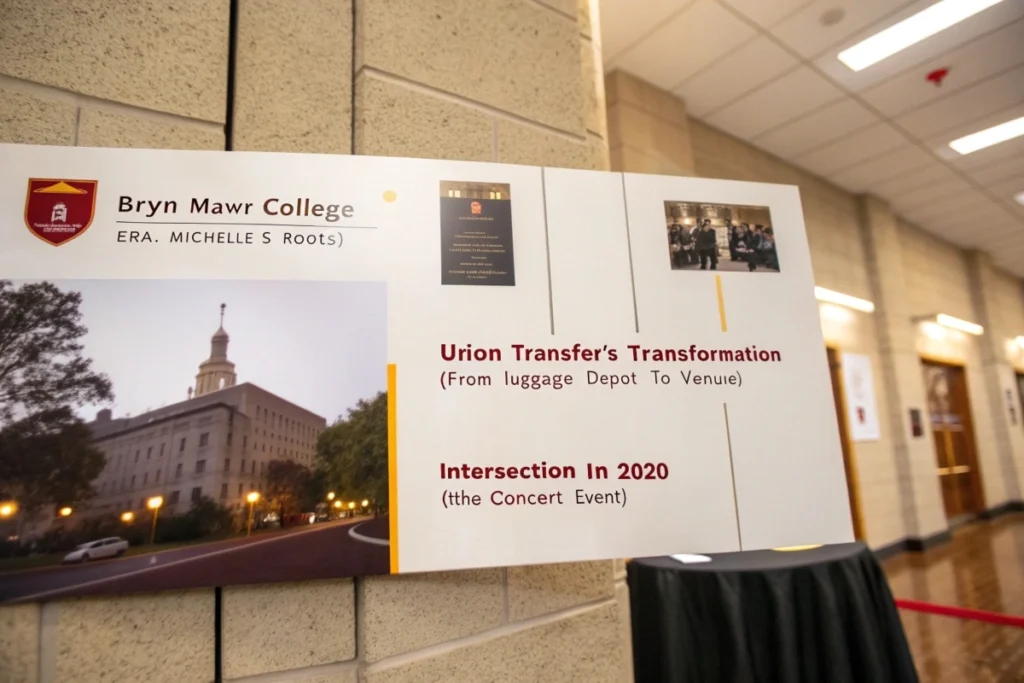
Practical Examples/Use Cases
- Local Fan’s Day Out
- Scenario: Chloe, a Philadelphia local, plans an entire Saturday around the Japanese Breakfast at Union Transfer 2020 show. She begins with brunch at a nearby cafe, checking out union transfer photos online for pre-show hype. After strolling through the city, she arrives early to secure a good spot near the stage.
- Result: By integrating good local food with a great live show, Chloe’s day underscores the synergy between Philly’s indie culture and gastronomic diversity.
- Traveling Music Enthusiast
- Scenario: Jordan, from out of state, decides to attend the Japanese Breakfast concert. He references food near union transfer recommendations, opting for ramen at a local spot before heading to the venue. He stays overnight, exploring historical attractions the next day.
- Result: Jordan experiences both the musical highlight and Philadelphia’s neighborhood vibe, forging a deeper appreciation of how local communities support the indie scene.
.Band-Inspired Menu
- Scenario: Sam, an aspiring chef, hosts a “Japanese Breakfast-themed dinner” for friends to celebrate the 2020 performance. He crafts a tofu soup referencing Zauner’s Korean influences, plus a mochi dessert as a nod to “Japanese.” They watch concert clips from Union Transfer while dining.
- Result: The evening marries music fandom with culinary exploration, illustrating how culture can bloom from a single show’s inspiration.
- Post-Show Community Meet-up
- Scenario: After the gig, a group of fans organizes an informal meetup at a late-night diner. They share photos, talk about the setlist, and swap local tips. One friend mentions the japanese-scallop-recipe for a future dinner party.
- Result: Strangers become friends, unified by the memory of that Union Transfer event, transforming a fleeting night into a long-lasting community bond.
These examples underscore how the japanese breakfast at union transfer 2020 moment transcended mere performance. It united fans, introduced people to Philly’s culinary corners, and sparked creative tributes—testifying to the lasting impact a single concert can have on cultural and social landscapes.
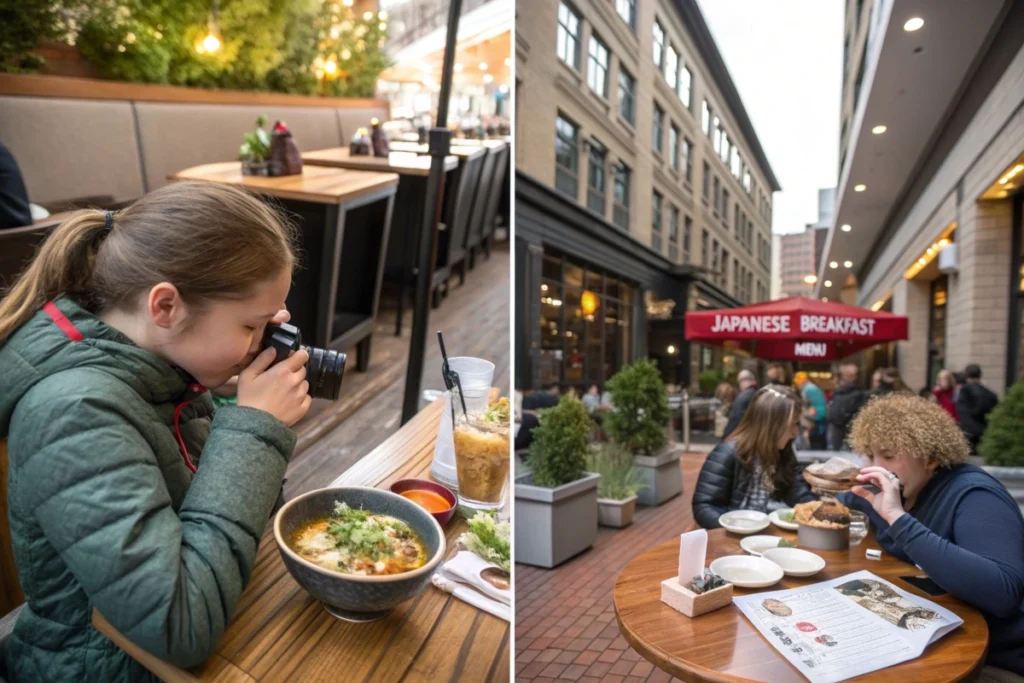
FAQs
Q1: Why is she called Japanese Breakfast?
Michelle Zauner has explained the name as partly random, partly reflective of her cultural curiosity—though she’s of Korean descent, the band name “Japanese Breakfast” was chosen to evoke a sense of vibrant cross-cultural references and everyday familiarity. It’s not directly about serving Japanese breakfasts.
Q2: Where did Japanese Breakfast go to college?
Michelle Zauner attended Bryn Mawr College, located near Philadelphia. Being immersed in the local indie scene during college significantly influenced her music career.
Q3: Who owns Union Transfer?
Union Transfer is run by local Philly promoters who recognized the potential of transforming a historic building into a modern music venue. Multiple partners collaborate to manage shows, with a focus on indie, rock, and various up-and-coming artists.
Q4: Where does Japanese Breakfast live?
While Michelle Zauner has connections to Philadelphia, she’s also lived in Oregon, New York, and spent time in Seoul. As an active touring musician, she’s frequently on the road. However, Philadelphia retains a special significance due to her college years and early music projects.
Q5: What can fans expect from a Japanese Breakfast live show?
Expect emotive vocals, lush dream-pop instrumentation, and personal storytelling. Zauner often interacts warmly with crowds, merging introspective numbers with energetic, danceable moments.
Q6: How do Japanese Breakfast’s themes link to food?
Michelle Zauner’s writing—particularly her memoir Crying in H Mart—touches on identity, grief, and motherly cooking. The “breakfast” in the band’s name cements the idea that food, culture, and memory are intertwined in her art.
Q7: Did the 2020 show have any special guests?
While not confirmed for every date, local Philly artists sometimes appear or open. In 2020, constraints might have limited guest appearances, but the synergy with local acts still enriched the evening.

Conclusion
Reflecting on Japanese Breakfast at Union Transfer 2020, it’s evident how music, community, and cultural reflections merge to create something uniquely memorable. A Philadelphia-based band—fronted by a Korean-American artist with a somewhat whimsical name referencing “Japanese Breakfast”—might seem like a swirl of contrasts. Yet, that swirl captures the modern indie spirit: personal narratives, cross-cultural resonance, and an openness to collaboration.
Union Transfer provided the perfect setting—its storied architecture bridging the city’s industrial past with the future of live music. Attendees reveled in songs that balanced dream-pop and introspection, forging an emotional safe haven. The synergy extended beyond the stage, spilling into local restaurants, late-night meetups, and even personal kitchens where fans tried making a “Japanese breakfast” themselves (albeit from a gastronomic perspective).
For those still riding the wave of indie enchantment, consider exploring noodles-japanese-pan-noodles-recipe for a post-concert treat. Because sometimes, the best way to prolong the magic is by savoring a comforting dish that embodies the same creative energy. Ultimately, the 2020 show exemplifies how a single night can anchor a deeper appreciation for music, place, and the cultural nuances that bring them together.

